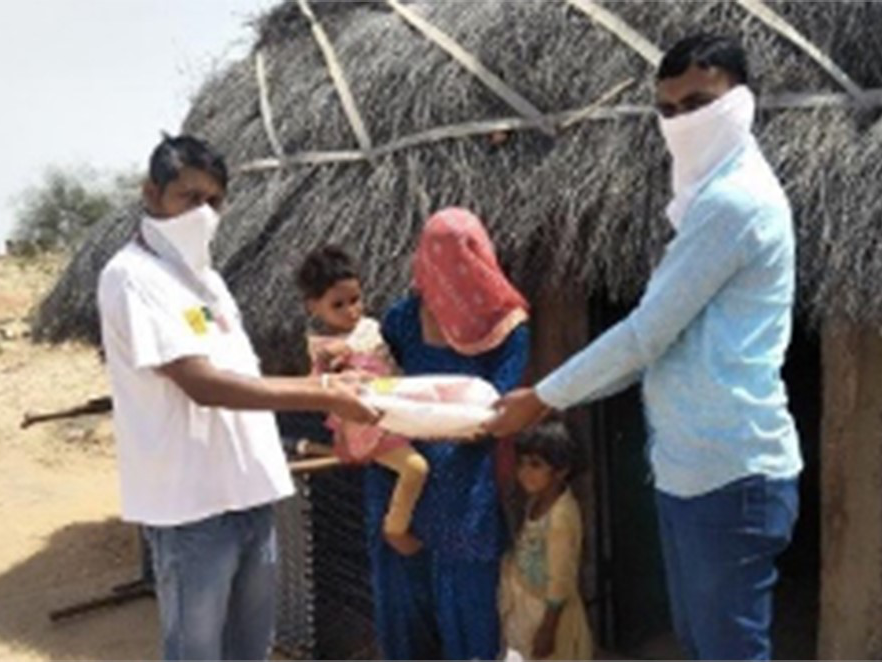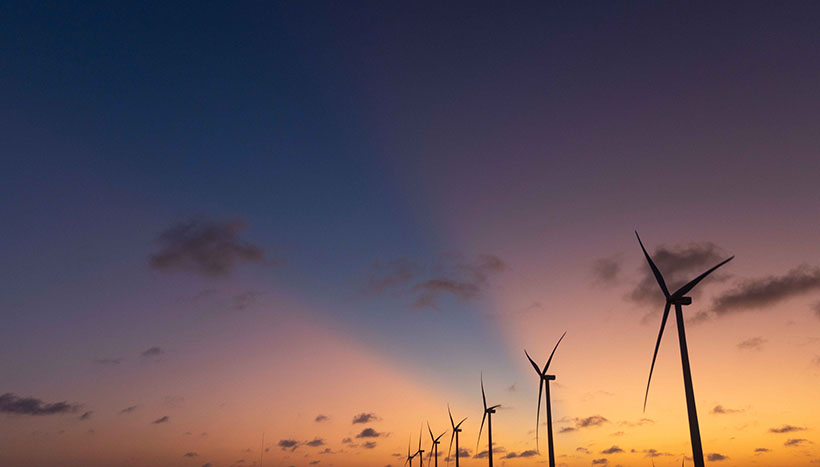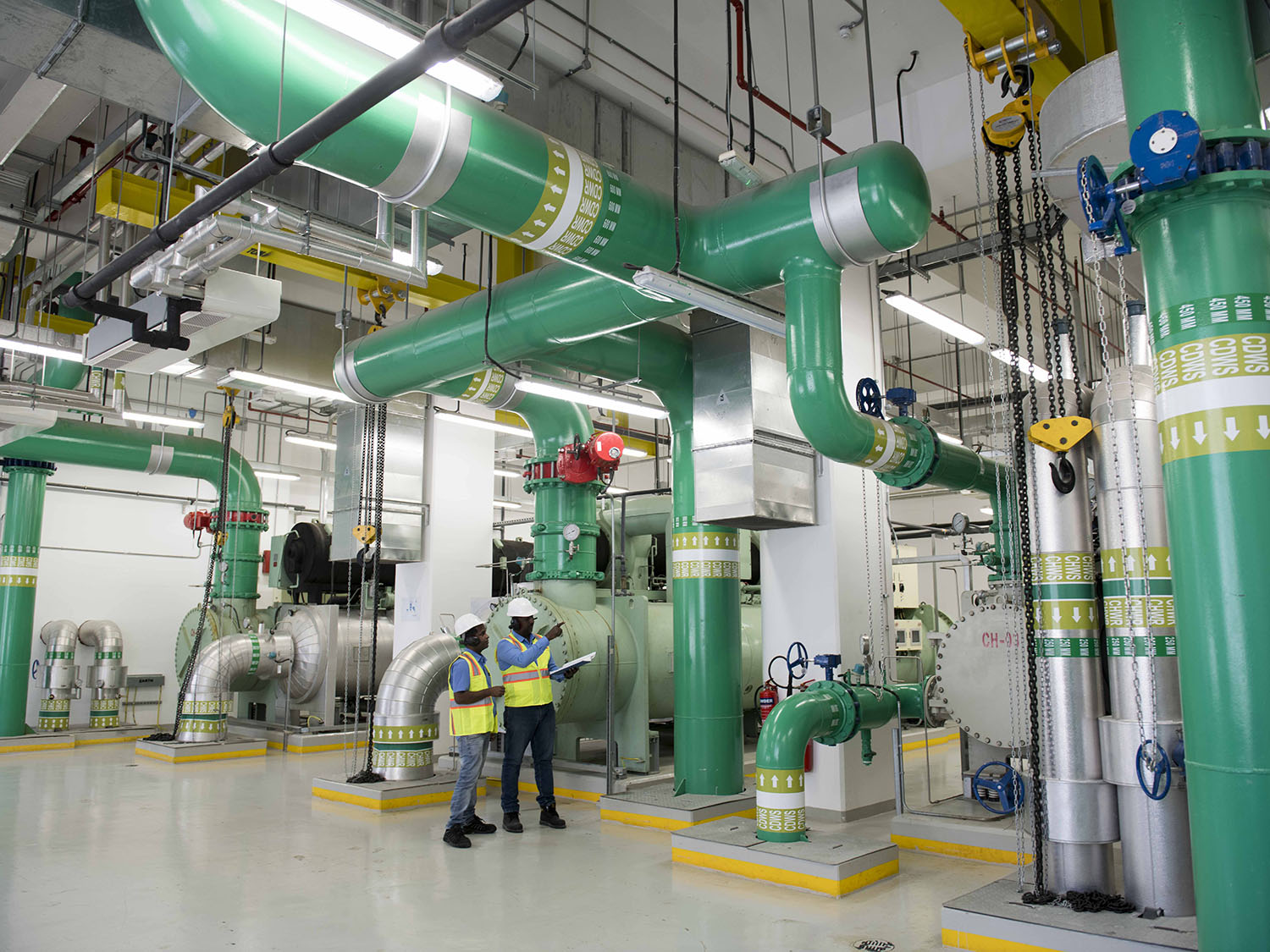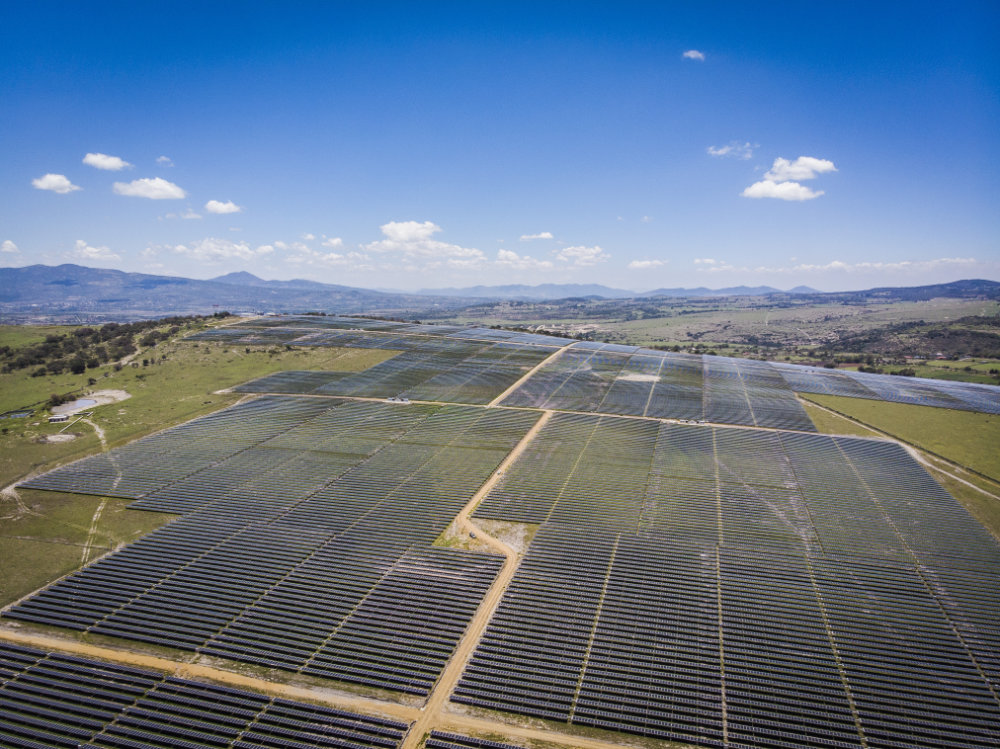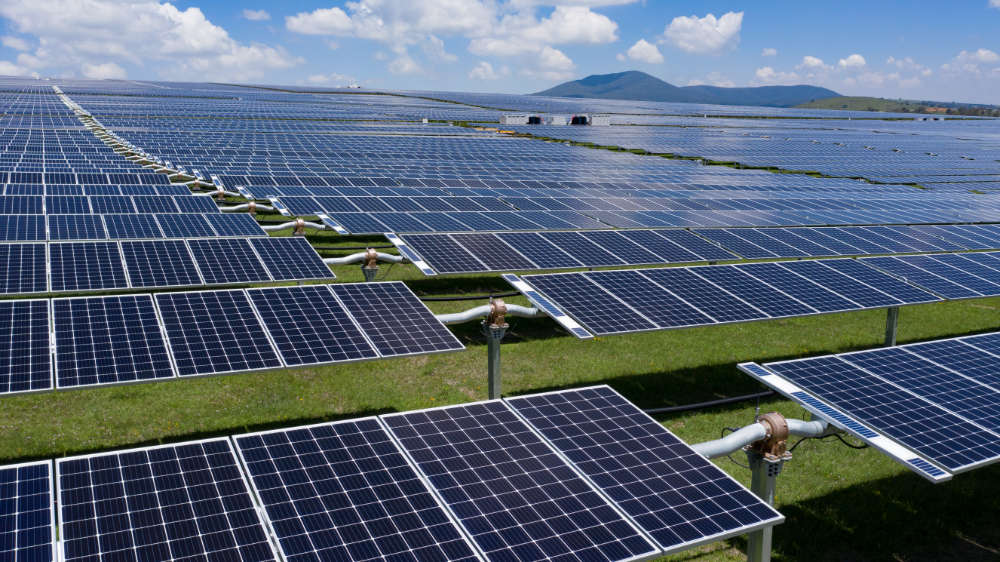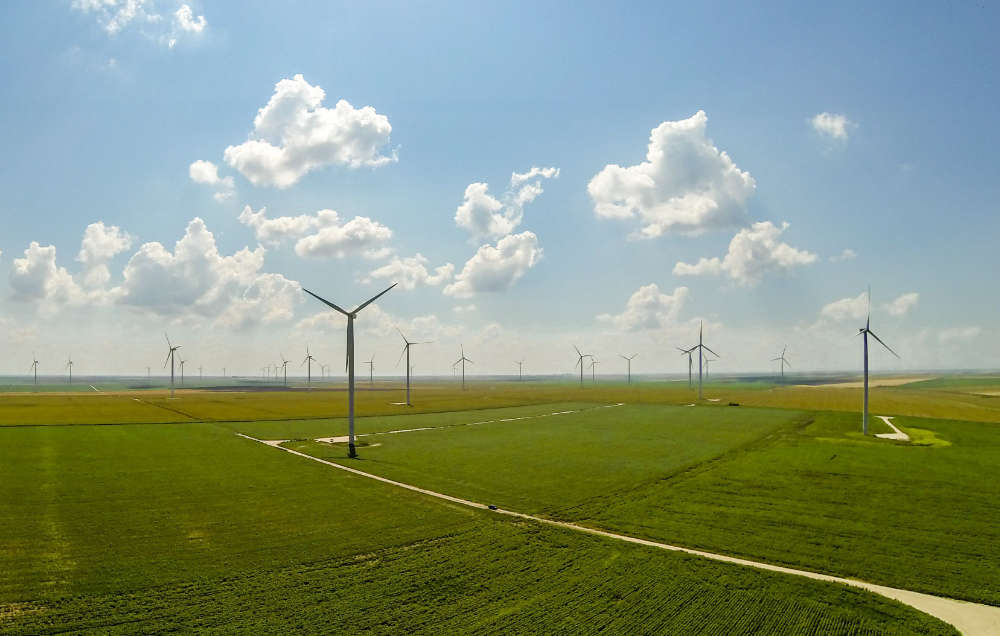Foodpacket distribution
Sprng Energy, the renewable platform of Actis Fund 4 Energy in India, currently has a 1.75GW portfolio with 650 MW operational solar and wind assets spread across four states, with 550MW of power under construction and another 550MW as contracted pipeline.
The COVID‑19 pandemic in India caused disruption of construction activities at our assets for around three months. With the lockdown lifting in phases, it continues to pose challenges for Sprng such as travel restrictions; labour movement from other states and different districts; night time work restrictions; quarantine requirements; community concerns about construction work resuming outside labour and raw material cost escalation (on account of industries being closed).
For the operational assets of Sprng, it was important that the operations and maintenance teams of the plants stayed in accommodation within or near to the premises to minimise exposure to the outside environment. This was to ensure that we operated to the highest health and safety protocols towards our staff, whilst continuing to generate power for the country. We are forced to look at activities which could be automated such as module cleaning to reduce labor dependence.
We take a very hands-on approach in working with our stakeholders, be it our employees, EPC and OEM contractors and sub-contractors or the community members. As the pandemic continues its spread across the country, we continue to ensure not only the continuity of the business but also the health and wellbeing of our employees by bringing in best practices.
Sprng started this work with the formation of a COVID‑19 Crisis Management Team (CCMT). The CCMT was designed to have a dedicated focus on Sprng’s operations and construction sites as well as the Head Office; taking appropriate decisions and necessary measures. The CCMT proved as a great engagement exercise whereby the selected group of employees worked in a very coherent manner. Detailed Standard Operating Procedures (SOPs) were released and each issue was taken up by the team members with the necessary protocols, instructions and guidelines produced.
We enabled our non-plant based operational and construction teams to work from home (WFH) from mid-March and this continues today. This was seamlessly implemented by the team, through our Business Continuity Plan. Test trials were done prior to triggering WFH and all travel was stopped unless critical to operations. HR also runs surveys to assess the wellbeing of employees on regular basis.
We actively engaged with all of our construction contractors as well as operational sites to have a direct exchange of knowledge and understanding on the protocols and guidelines to be implemented, ensuring strict adherence. All necessary precautions were implemented to ensure the healthy working environment at the Sprng sites. This included sanitisation of site office premises; maintaining dedicated quarantine rooms; raising awareness about the nearest COVID‑19 health centers; adhering to the travel advisory; ensuring enough food stocks in site guesthouses; medical checkups; body temperature monitoring, maintaining self-distancing; daily checklist and developing foot operated sanitiser system from scarp material.
Sprng provides the essential service of delivering power to the national grid and this electricity is supplied for various economic activities.It is critical that these power-generating projects continue to operate uninterruptedly.
Sprng power generation sites are located in remote rural areas. It was important to understand that the communities in proximity to our projects are Sprng’s major stakeholders. It is of the utmost importance for us to understand the impacts of the pandemic on their lives and livelihoods and support them in all possible manners.
In addition to this, a vast majority of our workforce such as workers, security guards and module-cleaning teams for project activities belong to these nearby communities. Therefore, it was critical to understand their immediate needs arising out of this pandemic to keep them and their families healthy and thereby ensuring the sites’ uninterrupted operations.
In these unprecedented times, Sprng has stepped up its efforts to help local communities deal with basic health challenges. For example, we have focused our ongoing community engagement efforts towards raising community awareness on preventive measures for COVID‑19 and on supplying communities with necessary PPEs like masks, soaps hand sanitisers to ensure self-hygiene at the local level.
Sprng also made provisions of staple foods and nonperishable items such as lentils, rice, wheat flour, sugar and spices to support food parcel deliveries to the most vulnerable segment of these communities in and around our project sites. The communities were sensitised towards the importance of self-hygiene e.g.hand washing techniques, wearing masks, use of soap/sanitisers and maintaining social distancing. Our ESG managers at the sites prepared simple and high impact videos to impart knowledge about general precautions and self-hygiene to the site workers.
In another intervention, Sprng is supporting women run self-help groups (SHGs) in manufacturing protective masks and distributing them to needy people in their localities. These SHGs worked in tandem with our team in spreading awareness on the use of vital protective equipment under the guidance of our NGO partner and village heads (Sarpanch).
An important aspect of Sprng’s initiatives has been supporting local authorities who face resource limitations. Sprng has provided financial help to augment the ongoing efforts of the local government authorities to support the most acute needs in the community.
In the post-pandemic scenario, we will tread cautiously, ensuring the safety and wellbeing of all our stakeholders. A return to work programme has been detailed to address various issues such as frequent sanitisations, distancing in office seating and PPE enforcement. We are planning to utilise a portion of our community investment plan for livelihood enhancement and upskilling the most deprived segment of the community, especially women, beyond the business continuity objectives alone.
This is certainly a moment for Sprng to demonstrate the true spirit of our social responsibility, and in doing so; we hope our endeavors will lead to enhanced relationships with our employees, local communities, government authorities and regulators in a post-pandemic world.
The Actis Energy team has been incredibly supportive throughout this period. They have provided a range of support from creating opportunities for direct exchange of experiences including learnings and challenges faced through interactive sessions between Sprng and other energy platforms; sharing valuable insights, lessons and guidance to our COVID‑19 related planning and SOPs for our office and project sites.
